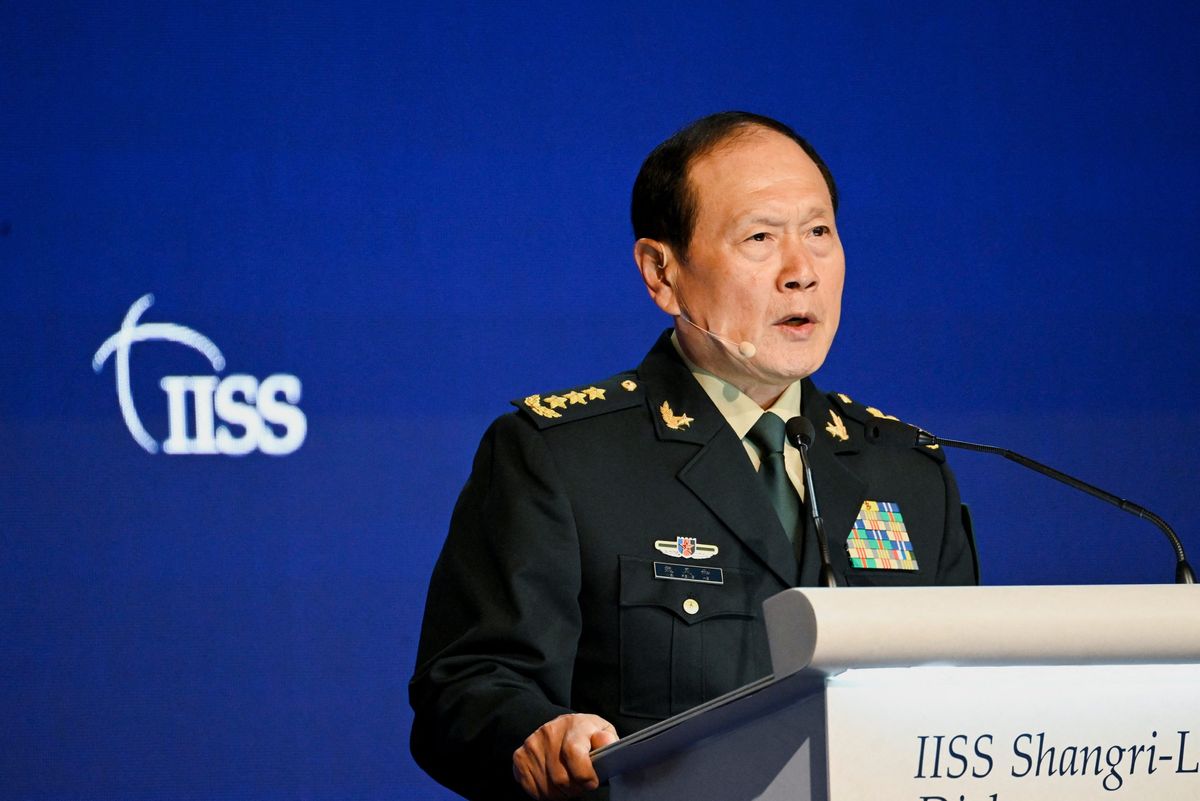Some key takeaways from the IISS Shangri-La Dialogue in Singapore

A few minutes every morning is all you need.
Stay up to date on the world's Headlines and Human Stories. It's fun, it's factual, it's fluff-free.
In case you missed it, the IISS Shangri-La Dialogue, which is Asia’s biggest defense conference, just wrapped up. Here are some key takeaways.
US-China tensions took center stage at the conference, with many nations saying dialogue between the two superpowers was of the utmost importance. During the two days, defense chiefs of the two countries both pushed their ideologies on how global order and stability should look. US Secretary of Defense Lloyd Austin promised to push back and defend Asian nations against what he described as “bullying" from China, while Chinese Defense Minister Wei Fenghe issued one of China’s strongest warnings about Taiwan yet, saying that “If anyone dares to secede Taiwan from China, we will not hesitate to fight.”
Australia and China had the highest level of in-person dialogue in Singapore between Australia’s Deputy Prime Minister Richard Marles and Wei. This is notable because China hasn’t allowed for calls or meetings with Australian ministers and direct counterparts since early 2020, with relations souring over issues like COVID and trade. Marles said that the conversation was “full and frank," where there was talk about the Australian aircraft and Chinese jet incident last month as well as issues in the Pacific region.
The US said that many Asian countries are reevaluating their ties to Russia because of the growing costs of being partners with them. Some of these countries have long ties with Russia, but that might not be enough for them to stay partners through the massive economic sanctions on the country. With that said, though, on Sunday, Sri Lanka’s prime minister and finance minister said the country may start buying oil from Russia to solve its domestic energy crisis. The country has been dealing with rolling power shortages and long lines at gas stations in recent months.
Ukrainian President Volodymyr Zelenskiy said that the Russian blockade, which is preventing Ukraine from exporting grain, is threatening a global food crisis. He urged defense leaders to put pressure on Russia to lift the blockade, arguing that food shortages likely will cause political chaos in a number of countries around the world.
The bigger question at the conference was the one that seems to be embodied by the Russo-Ukrainian war, which is that if there is actually a battle going on in the world between democracy and autocracy, who can win?
Key comments:
“Russia’s invasion of Ukraine is what happens when oppressors trample the rules that protect us all,” said US Secretary of Defense Lloyd Austin during his remarks at the event. “So let us use this moment to come together in common purpose. Let’s use this moment to strengthen the rules-based international order. And let’s use this moment to think about the future that we all want.”
“Can the rules-based international order we have built through hard work, dialogue and consensus be upheld, and the march of peace and prosperity continue?” Japanese Prime Minister Fumio Kishida asked rhetorically during his keynote speech at the conference. “Or will we return to a lawless world, where rules are ignored and broken, where unilateral changes to the status quo by force are unchallenged and accepted, and where the strong coerce the weak militarily or economically? That is the choice we have to make today.”




Comments ()